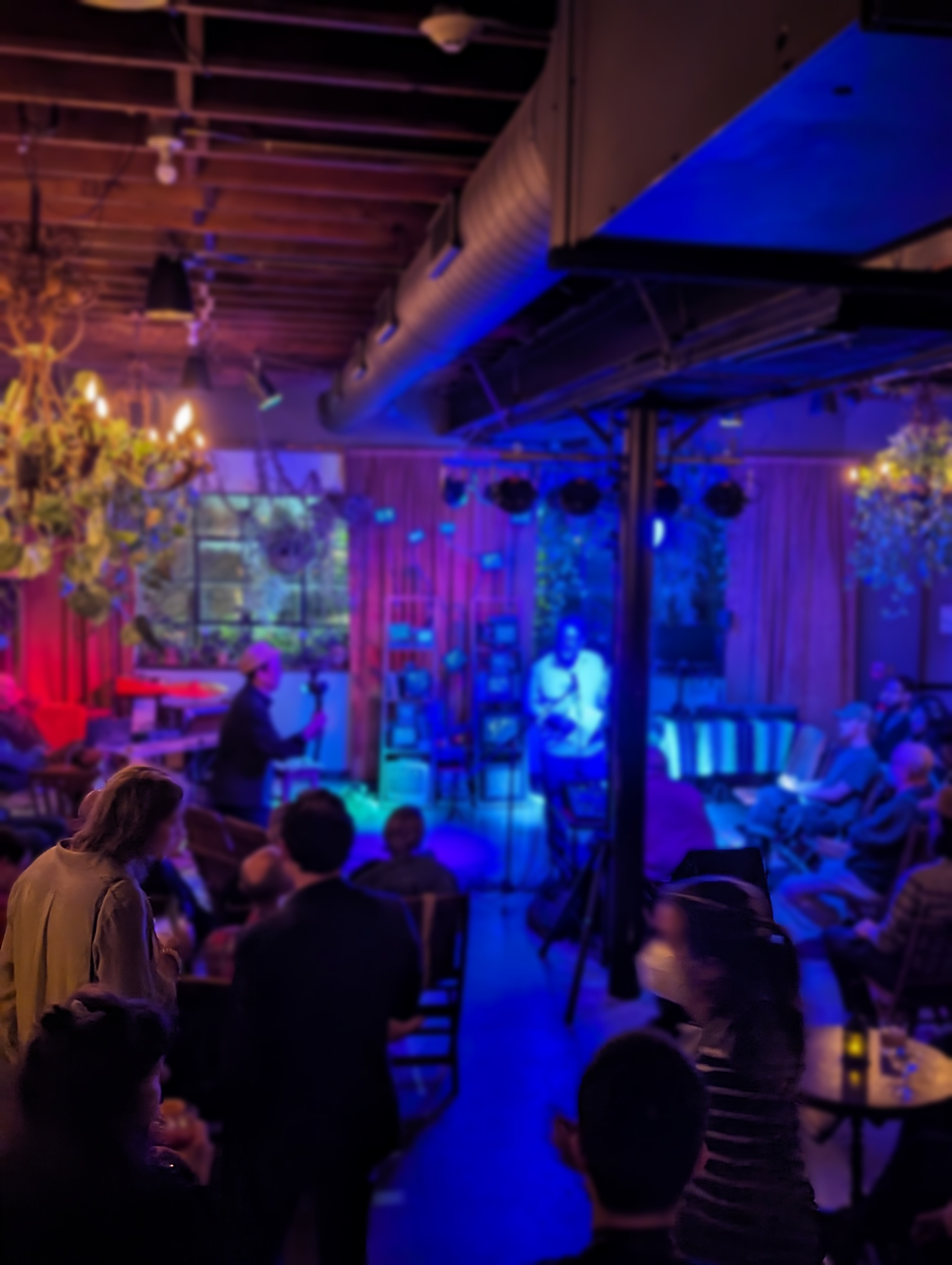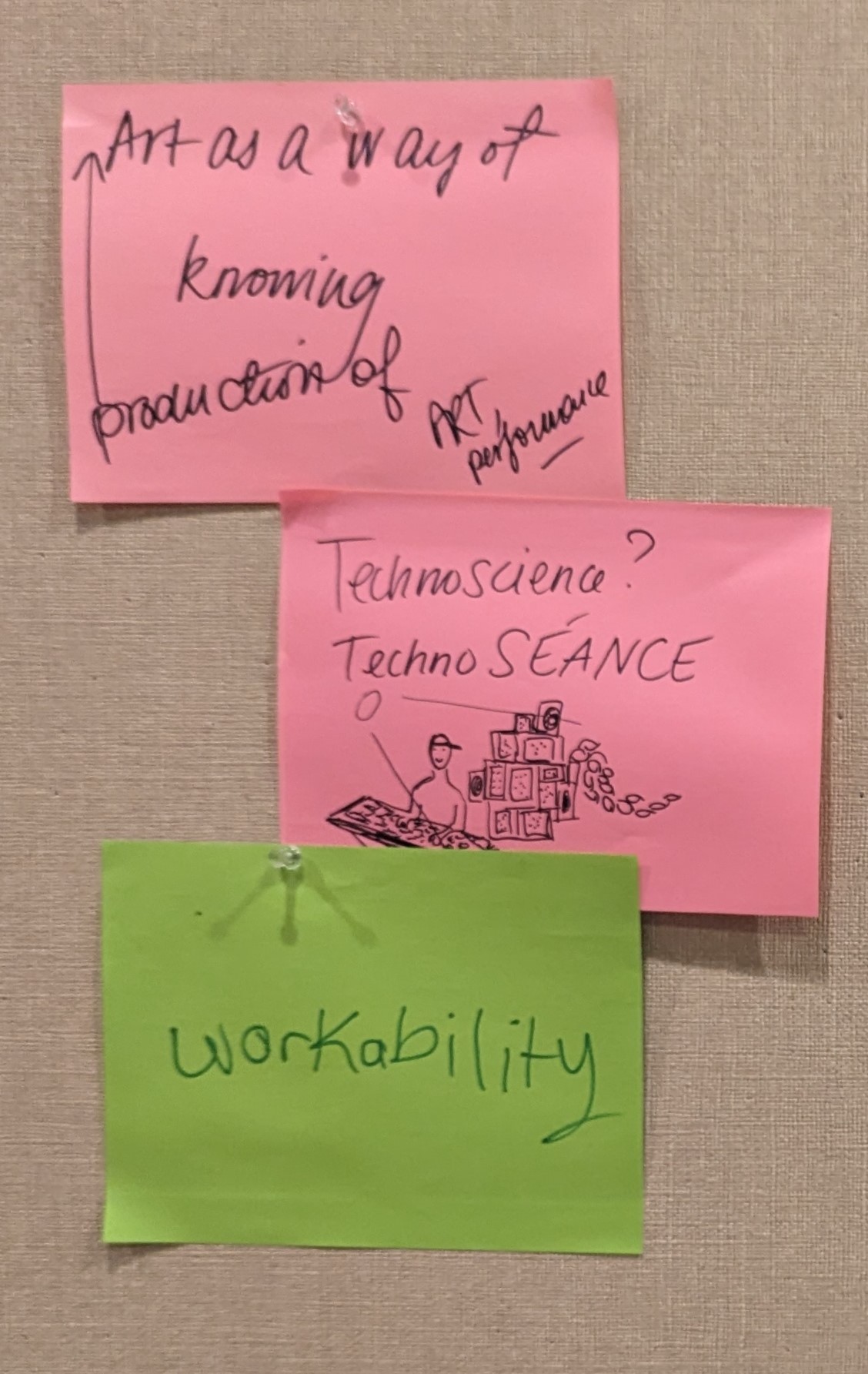Celebrating TrevorFest: Taking Trevor’s Legacy Forward
Amanda Domingues, Lissette Lorenz and Barkha Kagliwal
11/13/2023 | Report-Backs
“TrevorFest” was a weekend of reflection, recollection, and celebration that was organized in honor of Professor Trevor J. Pinch, who dedicated over 30 years to the department before passing in late 2021. Hosted by the Department of Science and Technology Studies at Cornell University from September 21 to 23, 2023, TrevorFest marked the start of Trevor J. Pinch Lectures in Innovative STS, a biannual lecture series to honor the work of scholars who are currently doing cutting-edge and boundary-pushing research in STS.
Trevor was not only instrumental in setting the standard for Cornell’s S&TS program, one of the first STS departments in the United States, but also in forming the field of STS especially through his collaborative work with Wiebe Bijker on the subfield of the Social Construction of Technology (SCOT). Early in his career Trevor made significant contributions to the Sociology of Scientific Knowledge (SSK) and later in the emerging field of Sound Studies. Nevertheless, what made his approach unique was that Trevor’s work transcended disciplinary categorization: he did not confine himself to a single path. He traversed through Physics, Sociology, STS, Information Science, and Musicology, among others. He was intellectually curious about all kinds of objects from scientific controversies in solar neutrinos to parapsychology and users, the weirder the objects the more Trevor was drawn to them.
Materiality
TrevorFest celebrated his diverse legacy. It brought together over fifty of his collaborators, former students, recent graduate students, and colleagues. This mix represented scholars at various stages of their careers, across disciplines and spanning the entire globe. Through a series of roundtables, discussions, and mixed-media performances, participants explored not only his contributions to the field but also how to carry forward his way of practicing STS into the future. Amongst the laughter, tears, and the occasional croon of a synthesizer, below we discuss some of the core themes that emerged from TrevorFest.
Trevor excelled at drawing attention to the fact that “Living in a Material World” (as the title of his 2008 co-authored book with Richard Swedberg argued) has consequences for knowing. He advocated for moving beyond a thought-centric view of knowledge, emphasizing the co-construction of knowledge and physical objects. Living in a material world requires not only acquiring knowledge from the material world, but also understanding how materials shape the very knowledge we acquire. For Trevor, knowledge-making practices are inseparable from practices of making and doing with materials; these are the embodied ways we come to know each other and the past, the present and the future.
Understanding materiality is only possible if we treat knowing as a process that not only recognizes the social dimension of objects, but also dives into the "why" of their existence. This approach, fueled by genuine curiosity, encourages researchers to seek out and explore the tensions in and among different knowledge systems. As Trevor liked to believe, why approach strangers, and strange things, as adversaries when they can be friends?
This approach to difference naturally led Trevor to become interested in controversies. Trevor’s unique way of presenting scientific controversies left an enduring impact on STS. He presented them as a method, following SSK, and employed a symmetrical approach to controversy analysis, emphasizing the fluid nature of controversies. They were ongoing discussions rather than resolved disputes that solidified into truths. Much like observing the way ripples disturb the stillness of a pond, by exposing the ever-evolving intricacies of scientific controversies, Trevor showed how they needed continuous negotiation and maintenance over time in order to seek a semblance of closure.
Controversies were just among the first important concepts that emerged from Trevor’s work. He had a special talent for recognizing emerging, crucial areas for the field. Trevor’s breadth of contributions also showed his joie de vivre and we believe this lives on through his numerous collaborators. His approach to collaboration, translation and boundary transgressions led to the emergence of overlaps between STS and fields such as economic sociology, user studies, risk studies and media studies.
Sticky notes with ideas and doodles for future directions for STS hatched during Trevor Fest. Thanks to Faridah Laffan and Chris Hesselbein for these contributions, complete with cartoon synthesizer. [Image credit: Lissette Lorenz]
Art
Trevor's remarkable capacity to navigate across disciplines, as well as his passion for making music, facilitated his active involvement in research situated at the confluence of Art and STS. In this capacity, he established himself as a prominent scholar in the domain of Sound Studies: “an emerging interdisciplinary area that studies the material production and consumption of music, sound, noise, and silence and how these have changed throughout history and within different societies”
At the beginning of the 21st century much had been done in the field of visualization, but the use of sound in scientific research had received significantly less attention. Trevor ’s research helped bring sound to STS. He focused particularly on the development of musical instruments, sound objects, and “soundscapes”: the use of sound as a method of scientific observation and description. Trevor’s work examined instrumentality and sound beyond the domain of the aesthetic that had long dominated the field of Musicology.
Trevor's research agenda was ignited by his passion for music and further enriched by his background as an STS researcher, his past experience as a musician in London, and his keen interest in the origins of musical instruments. His fascination with the Moog synthesizer and curiosity about its inventor Robert Moog propelled him to pursue extensive research, which was notably published in his monograph "Analog Days: The Invention and Impact of the Moog Synthesizer." Trevor's commitment to sound studies was not limited to research. He also experimented with sound and constructed his own modular synthesizer. He participated in the creation and recording of electronic music as part of a duo with James Spitznagel, known as The Electric Golem.
Advocating for the convergence of Art and STS was one of Trevor’s final academic accomplishments. One of the last pieces Trevor published was the foreword to the 2021 Routledge Handbook of Art, Science, and Technology Studies . In it, he writes:
What we have to overcome most of all are myths about both science and art enshrined in individual creativity and notions of purity. Art and science are both social enterprises…We must also jettison the hackneyed myth of the two cultures. Overlaps, blurring, and interdisciplinarity are the norm. Art, Science, and Technology share much as socially constructed practices…Boundary objects, boundary work, trading zones, the role of users, audiences, performativity, agency, and social worlds—the full gamut of STS concepts glitter before our eyes here (3).
As we write this piece, we imagine Trevor’s eyes glittering over the revelry of TrevorFest and over the future of (A)STS, in which he will forever remain a luminary. While TrevorFest activities during the day consisted of panel discussions devoted to his research on social scientific conceptual areas such as politics of knowledge, and performance and the arts, as night descended the participants’ senses were treated to a mesmerizing tapestry of mixed-media performances featuring the very instruments we learned about during the day. The tribute concert left the audience with a sense of wonder, and it was truly an experience that will be cherished for a lifetime.
<
Audience members enjoying a multimedia tribute concert to Trevor at Argos Warehouse. [Image credit: Lissette Lorenz]
Joy, Humility, and Curiosity
A theme that was brought up from the very first panel discussion on was that Trevor approached every aspect of his academic life with joy. Trevor believed that joy was the fuel for exploring the world and asking important questions about it. But how exactly does joy help us in this quest? For Trevor, joy served as a powerful tool to spark people's interest in the world around them. In teaching, Trevor's approach was to connect curious events to STS topics, making the subject matter relatable and engaging. By welcoming collaborative, unconventional approaches to everyday objects, he transformed monotony into play and brought joy to decades of research and teaching. His approach was one that encouraged his students to pursue their passions, to jump into projects head-first, and figure out the “how” along the way.
In response to even their most seemingly far-fetched ideas, students remembered Trevor saying,"we can do that” and, "let's have some fun.” Trevor believed that so long as we are interested in the topic, motivated by our questions, and are willing to put in the work, any idea is a good one. And failure is to be playfully embraced, not feared. “Remember when Trevor’s homemade synthesizer caught fire at the end of his show?” someone gleefully recounted during the fest. These pieces of advice reflect his spirit of generosity and humility.
Trevor was an exceptional mentor. Despite being such a successful and highly esteemed academic, he was always striving to demystify the profession by being genuinely kind and humble. Trevor always encouraged his students to think outside the black box of technoscience and STS itself. He welcomed their ideas and urged them to ask the kinds of subversive questions that often go unexplored. He believed in STS not only as a discipline but also as a method that allows scholars to engage in dialogue with different kinds of experts and to ask them difficult questions while maintaining mutual empathy.
Using STS as a method of material-discursive engagement was what allowed Trevor to navigate so easily between different disciplines and establish a dizzying number of collaborations. He had a gift for working with others, even when they had completely different opinions. His secret to successful collaboration lay in mastering a fundamental principle: finding the balance between appreciation and constructive criticism, endearment, and critique.
Trevor was always much more than a mentor to his students; he was also a friend. Now as we look forward to the Trevor J. Pinch Lectures in Innovative STS, may future generations of STS scholars and practitioners continue on this path of conviviality that Trevor forged.
Acknowledgments
We would like to thank the organizers of TrevorFest Janet Vertesi, Steve Jackson, and Stephen Hilgartner for such an inspiring experience. For a more detailed narrative of Trevor’s work, see: Lynch, Michael and Wanheng Hu. “Memorializing Trevor Pinch: A ‘Constructor’ of the STS World” [in Chinese]. Journal of Dialectics of Nature 44.12 (2022): 5-13.
Amanda Domingues is a Ph.D. Candidate at Cornell University’s Department of STS. Her research engages Feminist Theory, Latin American STS, and Indigenous Studies to examine how scientists have combined scientific methods with marginalized knowledge systems. Her focus is the field of archaeology and the recent debates in that field about ethics and community consultation.
Lissette Lorenz (they, she) is an art-science practitioner and scholar. They are currently a PhD candidate in STS at Cornell University with a background in environmental studies, theater, and dance. They study the environ/mental health challenges of more-than-human communities in the age of planetary crisis. Drawing from critical social theories across the humanities and social sciences, Lissette utilizes interdisciplinary and experimental qualitative methods involving somatic techniques to address this crisis. As a neurodivergent scholar, Lissette also draws from their own personal experiences with bipolarity and ADHD to further explore Earthly un/worlding in art-science contexts. Find out more at lissettelorenz.com.
Barkha Kagliwal is a Ph.D. Candidate at Cornell University’s Department of STS. Her research program analyzes how visions of food-processing technologies articulate relations between the state, society, and technoscience. It also examines the gendered dimensions of entrepreneurship, automation in the Global South, and controversies about food.
Published: 11/13/2023

